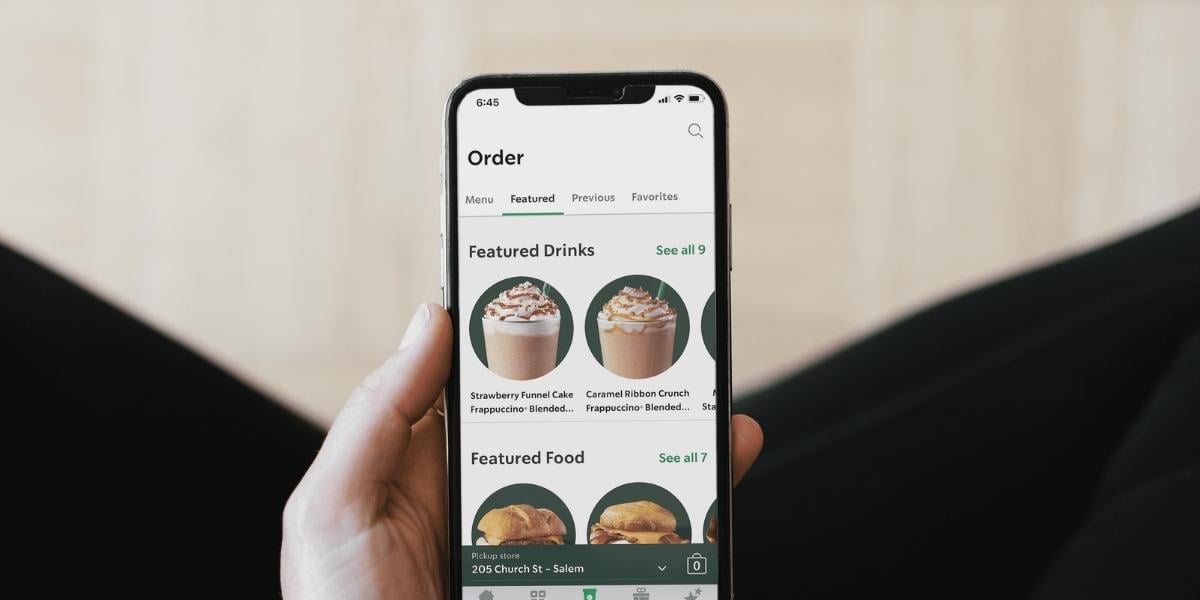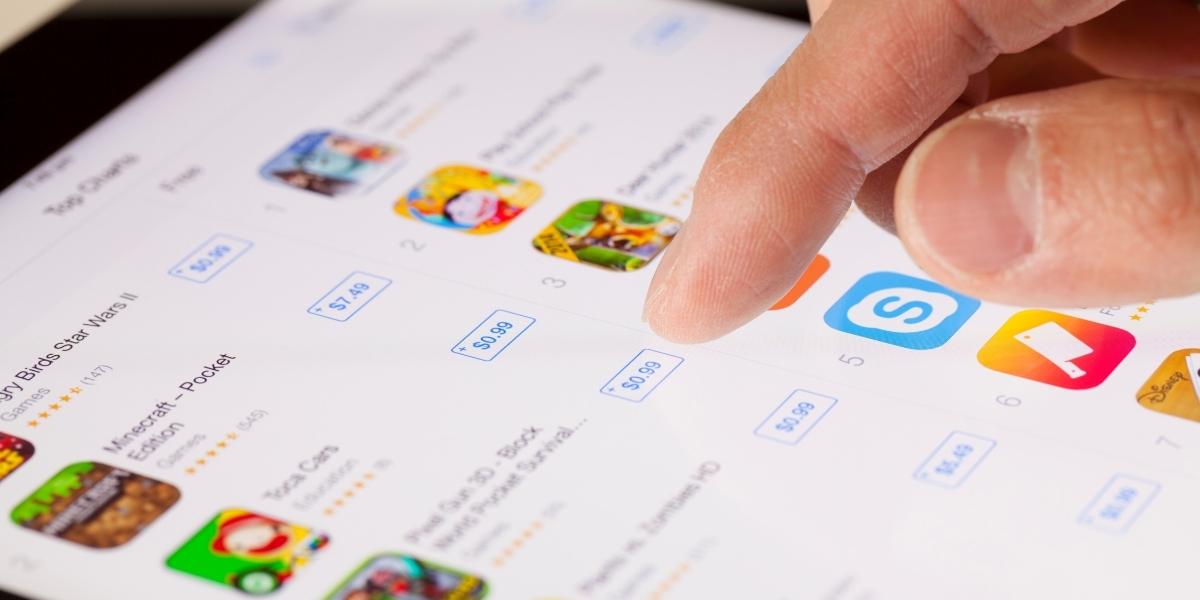How Do You Make A Successful Mobile App Strategy?

Launching a mobile app is an achievement in itself. But that does not always spell success, at least not for long. The lack of a reliable mobile app strategy is why many applications and projects fail.
Did you know that in 2019 alone, customers abandoned 1 out of 4 mobile apps? By abandoned, this means that it was only used once. So how do you make an effective mobile app strategy?
What is a Mobile Application Strategy?

A mobile development strategy is the same as a mobile app strategy. It is a strategic plan that covers that tackles these essential considerations:
- The purpose, nature, and features of the mobile app product
- How the app integrates and aligns with your business goals or organization objectives
- The execution of the mobile application development process
- How the finished product can deliver a strong return on investment (ROI)
Importance of Mobile App Strategy

You might think that building a mobile development strategy is an ordinary routine. But the truth is, it determines the success or failure of your app.
Thus, how does it help your business? Listed below are the benefits that you will gain.
It Gives Your App Focus and Direction
Market research is a crucial aspect of any mobile app strategy. It helps you determine your target audience.
With research, you see important details such as mobile app usage. Product preferences and online behavior are also relevant data you can use.
Aside from knowing your buyers’ demographics, research also lets you know your competition. Rather than guess, you gain insights into your competitors’ weaknesses.
A strategy also lets you identify your goals. You will get a glimpse of the performance standards you must meet to be successful.
It Guides Your UI / UX Design and Development Principles
Market insight is not the only thing you gain from a mobile app strategy. This will also enable you to build the foundation of your UI/UX design. You can make your app more intuitive and user-friendly.
Apps that can deliver a superb customer experience provide more value to the company. They can help build a strong customer base.
When you have a loyal legion of clients, your revenue increases. On a closer look, it will also enable you to reduce costs. You do not have to spend on expensive ads to get new customers.
This is why a strategy should be an essential part of your software development process.
It Helps You Decide on the Right App Development Resources and Technology
Strategizing makes it easier for you to determine the right technology stack. Technology stack refers to programming languages and frameworks that you must use.
Likewise, it will help you gauge whether you have enough mobile app developers to build the app. As a result, this will save you a considerable amount of time and prevent wasting resources.
It Prepares Your Pre-Launch and Post-Launch Marketing in Advance
It is possible to create pre and post-marketing before developing the software.
You can start by exploring various digital marketing strategies. Examples of these are app store optimization (ASO) and search engine optimization (SEO).
Email and social media marketing are also powerful approaches you can use. These tactics will help your mobile app become more visible to your target audience.
Now here is a quick tip for the post-launch marketing: get feedback. Know what your customers think about your app. Be bold in asking difficult questions. The answers you get will help you grow.
BONUS BENEFIT: It Lets You Explore Monetization Options for Your Mobile App
Did you know that a mobile app strategy opens various monetization options? Examples of monetization options include:
- Ads. You can launch a zero-ad version of your mobile app in exchange for a fee. Or you can offer a free version that comes with ads.
- Affiliate Marketing. You can earn commissions by collaborating with another brand. All you have to do is promote their product. But you need to make sure that you know their product well and believe in them.
- Freemium Approach. Using a freemium model, you can launch your mobile app for free. But here is the catch. Your users must pay a fee so they can use your app’s exclusive features. Spotify, Candy Crush Saga, and Tinder are big brands that use the freemium model.
- Subscription Model. This model lets users subscribe monthly or annually to use certain features. Examples are Netflix, Duolingo, and Hulu Plus, among many others.
- Transaction Fees. If your app performs transactions like hotel booking, you can charge processing fees.
What Are The Elements Of A Good Mobile App Strategy?

Below are the key ingredients to developing effective mobile app strategies:
An Awesome Idea that Delivers a Solution
Having a killer idea for a mobile app product is not enough. Your app should serve a definite purpose – it either solves a problem or fulfills a user’s need. In other words, what is your app’s value?
Once you get that part locked in, you can start the app development. Your team can now devote their energy and creativity to bringing value to your customers.
A Visually Appealing and User-Friendly UI that Performs Well

Consumers these days are no longer content with basic features. You need to make your app engaging. Otherwise, you risk becoming a victim of user abandonment.
It is not enough for your app to be visually appealing. It should be easy to use and navigate. These features prove that your app delivers an engaging user experience.
An intuitive and immersive UI encourages customers to continue using your mobile app.
Reliable Functionality that Earns the Users’ Trust

Earning an app user’s loyalty is never easy.
But if your mobile app is reliable, you are on your way to earning the consumers’ trust.
Feature-rich mobile apps make consumers’ lives easy and convenient. This is why they are very appealing to customers.
Take the Starbucks app, for example. Once you launch it, it immediately tells you the nearest Starbucks locations in your area. Furthermore, it can retrieve your transaction history. This proves quite handy when you forgot the name of the coffee you ordered last Thursday.
In this way, Starbucks makes sure that its customers have a good reason to keep using its app.
A Marketing Strategy that will Convince Users to Download the App

When launching your mobile app, you need to let the world know about it.
Of course, this is easier said than done. After all, the mobile market is competitive.
On Google Play, more than 2,800 new apps, on average, are released every single day. On Apple’s App Store, the daily average is around 850 new iOS apps.
Due to this, you need to work on your mobile app’s unique selling proposition (USP). What makes your mobile app different from the rest? What benefit can users gain from downloading, installing, and using your app?
A Solid Customer Service Support that Adds Value After Deployment and Launch
Your mobile app may already come with an amazing UX and an easy-to-navigate UI. But that does not mean your users will not have questions about how to use it.
This is where a dependable customer service support team plays a vital role. A good practice is to have your team available on as many platforms as possible (phone, chat, email, etc.). Also, do not forget to set up a Help Center page on your website. If you can find a way to include your Help Center inside your mobile app, so much better. It will make your app users feel valued and well taken care of.
Mobile App Strategy: Valuable Tips

#1 Expect Fluctuations
Fluctuations are always inherent in any business cycle.
Mobile app development is not an exception to this. Your app’s development could take a hit because of changes in your team’s roster.
Some features may take some time to develop because they use new technology. Your team needs to adjust. The complex codebase that took weeks to write may take longer to debug.
Unforeseen circumstances may force your team to switch to a new mobile app framework. Unfortunately, this scenario could undo months of work.
Still, accepting Murphy’s Law does not mean you can’t prepare for it. You can be proactive in implementing measures to deal with unexpected changes.
PRO TIP: Pre-Plan to Prepare for Possible Fluctuations
Always have a backup plan in your mobile app development process. This is most especially true if you encounter issues, delays, or hurdles.
The best practice is to have a team ready to mobilize if a problem needs resolving fast. Of course, it helps if you try to list possible fluctuations ahead.
#2 Perform Market Research
We have discussed the importance of app market research in mobile app strategy creation.
It bears repeating because proper market research increases your chances of success.
Market research done right can give you insights into the following:
- The latest industry trends
- The psychology of your potential customers
- The pain points of your target audience
- Who are your competitors are
PRO TIP: Perform a SWOT Analysis
A SWOT (Strengths, Weaknesses, Opportunities, Threats) analysis is a popular market research approach. With this, you can study your market and analyze your weakness at the same time.
By identifying your app’s strengths, you can fine-tune its unique value proposition. Meanwhile, listing its weaknesses enable you to plan for improvements.
The SWOT analysis also helps you look into potential threats. This is crucial in ensuring that you never lose your customer base.
Threats are not the only thing you can determine in a SWOT analysis. The approach also shows you opportunities you can leverage.
#3 Use Cloud Technology
Smartphones and tablet devices these days run on different operating systems. These mobile devices have their respective hardware specifications and screen sizes.
Mobile app developers’ workaround for these hurdles is to develop cross-platform apps. With a cross-platform approach, they only need to create one codebase.
Developers may house the codebase in servers running in the cloud.
Other advantages of cloud technology include:
- Accessibility
- No worries about hardware upgrades
- Easier database integration
- Scalability
- Data storage security
- Data recovery
PRO TIP: Find a Cloud Hosting Service that Meets Your App’s Requirements
Get a cloud hosting service that you can customize. Beware of cloud hosting companies that have bandwidth limitations. You need to stay away from providers that limit access or charge excessive fees.
#4 Enhance Data Security
Improving data security is essential for mobile apps. Mobile users provide personal or sensitive information through apps. Without enhanced data security, confidential data become vulnerable to cyber-attacks and data breaches. The best practices for protecting data include:
- avoiding transmitting user data online
- encrypting data stored locally on a device’s memory
- screenshot blocking
- activating file data protection.
PRO TIP: Leverage SSL Certificates to Improve Your Mobile App’s Data Security
Another method for enhancing data security is to use SSL certificates. Although SSL certificates are used for websites, they can also protect mobile apps. This is by securing payment gateways, which cyber criminals target.
#5 Focus on Performance
As much as possible, you should prevent your mobile app from crashing. Likewise, it should be error-free and bug-free.
It is because consumers may leave bad reviews. Or they can submit low ratings on social media and other public platforms. One error could stain your reputation for years. Do not let that happen.
There is no such thing as a 100 percent perfect mobile app, but by focusing on performance, you can get close.
PRO TIP: Never Skimp on QA Testing
QA testing is more than checking for functionality errors, bugs, and anomalies. Thus, we recommend that you conduct comprehensive QA testing. This is an opportunity for you to check your mobile app’s intuitiveness and ease of use. If you can conduct usability testing using actual customers, by all means, do so.
#6 Think 5G
5G is the future of digital technology. What better time to start embracing 5G than now?
Here are the many ways in which 5G will supercharge mobile applications:
- Superfast and ultra-high-quality video streaming capabilities
- Easier file transfers
- Better and faster integration with Internet of Things (IoT) technologies
- 3D tech integration
PRO TIP: Explore How 5G-Boosted AR/VR Will Make Your Mobile App More Immersive
Virtual reality (VR) and augmented reality (AR) technologies make your app more engaging. How? These technologies deliver a completely immersive user experience. The arrival of 5G tech should allow easier integration with VR and AR APIs.
#7 Use artificial intelligence (AI)
There is no replicating the awesomeness of human brains yet. But it is evident that (AI) is getting better at understanding how our brains work.
On mobile apps, AI can study and expect the end-users actions. This results in creating a more intuitive and personalized experience.
PRO TIP: Take Advantage of natural language processing (NLP) and machine (ML)
You can combine NLP and ML to enhance your mobile app’s customer support feature. NLP tech responds fast to customers’ questions.
Compared to human tech support, NLP can accommodate issues or concerns immediately. Meanwhile, ML can run predictive analyses on your usage data. You can leverage ML by using it to identify trends.
Developing a Mobile App Strategy that Works — Step by Step

Know Your Business’ Goals First
Before the mobile application development process, you must understand your company’s goals.
Make sure you already know your business’ long-term and even short-term goals. Of course, it helps if you have a clear vision of your identity as an organization.
Map Your Customer’s Journey
Do not stop at doing market research. Take one step further by also studying your customer’s journey.
Customer journey mapping refers to documenting the behavior of your customers. What you record here are the steps they take when they engage with your business.
By generating a customer journey map, you will understand your clients more. You can use the data you generate to improve your app’s UI.
Study Your Competitors
Look into other brands and their mobile applications, and then find out what makes them click. While you study your competitors’ strengths, you will also know their weaknesses.
We spoke at length before about performing a SWOT analysis. Never underestimate the Opportunities and Threats aspects. They will help define what your mobile development strategy will be.
Define Your App’s Main Concept
Summarize your mobile app’s core idea into the following main criteria:
- The WHAT: What is your app? What does it do?
- The WHY: Why should customers use your app?
Determine the Budget and Resources Required to Build Your App
Your budget will depend on the resources you need to bring your app to life. In any mobile app development process, your resources are:
- The technology stack
- The software development method
- Your app development team
- Should you form an in-house software development team?
- Should you hire a software company to develop apps?
If you assess your resources and budget ahead of time, it is easier to execute your app development plan.
Decide If You Are Building A Native App or Hybrid App
There are some important factors you must consider when choosing native app development.
Considerations When Defining Your Android Mobile App Strategy
- Android is the most widely used mobile operating system in the world
- Choosing native Android app development will mean that your app will have a global reach
- Android is generally more customizable compared to iOS
- Device fragmentation means that Android apps take a longer time to build
Considerations When Defining Your iOS Mobile App Strategy
- iOS is the most popular mobile operating system in the United States. Choosing native iOS app development means the majority of your app users are from the US
- Building iOS apps is easier than building Android apps
- iOS users are more likely to spend on in-app purchases
Considerations When Defining Your Hybrid Mobile App Strategy
- You can use a single codebase for your mobile application, and it will run on both Android and iOS mobile devices
- Building a single codebase is cheaper than building separately for Android and iOS
- One codebase is easier to maintain
Formulate Your Testing Strategy
A good testing strategy should cover the following:
- Platform and device testing
- List of features to be tested
- Test cases for testing the app’s UI / UX
- Assembly of your QA testing team
Do not forget that documentation is an integral part of the testing process. Document every step and result of the QA stage to avoid the same bug and error iterations.
Plan the Marketing for Your App
You need to explore various marketing strategies you can use for your app.
For instance, you can do any or a combination of the following:
- Setting up a landing page
- Content marketing (blogging, guest blogging, etc.)
- Email marketing
- Social media marketing
- Influencer marketing
- PPC ads
Define Your Launch and Post-Launch Action Plan
Identify the things you need to do when launching your mobile app.
These should include:
- Submitting your app to Google Play and the Apple App Store
- Installing analytics to track your app’s performance
- Optimizing your app via app store optimization (ASO)
Immediately after launching your mobile application, here are the things you need to consider:
- Collecting feedback from your users
- Monitoring churn
- Tracking customer reviews on social media
In Conclusion
Formulating a mobile app development strategy is a bit challenging.
Still, we can’t stress enough how essential mobile app strategy is in ensuring the mobile app’s success of your project.
Ready to Discuss Your Needs?
BIT Studios is always ready to listen to you.
Our mobile app development services team is here to help you determine the best approach. Regardless of your mobile app idea’s requirements, we can work on it.
We have extensive experience in both Android and iOS app development. Likewise, we are also skilled in building hybrid apps.
Through our UX and rapid prototyping approach, we’ll transform your idea into a reality.
Get in touch with us today, and we will help you develop your mobile app strategy!
Mobile App Strategy FAQs
What should your organization do before developing its mobile strategy?
The first thing you need to do before you create your own strategy is to understand your organization’s goals. Your long-term or short-term goals will help you plan your mobile app strategy.
Before you build your mobile app, make sure that it aligns with your company’s objectives. This will give your strategic direction and help you avoid wasting time, money, and effort.
What makes a mobile strategy successful?
The success of a mobile app strategy hinges on various factors. One essential factor to consider is the level of focus on customer experience. Engaging apps create loyal customers.
A successful mobile app strategy also has a seamless mobile app development process. You need to identify the right developer, technology stack, and QA procedures. With these aspects combined, you can deliver your project on time.
Above all, the combined app strategy should translate into measurable results. Launching a mobile app and making it available in Google Play and Apple’s App Store is not enough. To succeed, your mobile app should sell, attract users, and accumulate app downloads.
What are the latest application development strategies?
5G is an emerging technology often included in strategy creation. Many developers explore ways to leverage 5G’s speed and efficiency. Many look at how they can integrate these capabilities into existing mobile apps. Some are also eager to build new 5G-optimized apps altogether.
The consumers’ shift from 4G to 5G is the reason behind the strong push for 5G.
Another mobile app strategy that is rising in popularity is the use of AI and ML to further enhance an app’s UI / UX. Both AI and ML are also leveraged for predictive analytics to make apps more intuitive.
What are the steps to develop an app?
As an expert software developer, these are the steps that we can recommend that you need to follow to develop an app.
- Brainstorming an idea.
- Research
- Create a prototype
- Sketching
- Wireframing
- Preparing your development tools to use
- Coding and Programming
- Software testing
We’re BIT Studios!
At BIT Studios we specialize in designing, building, shipping, and scaling beautiful, usable products with blazing-fast efficiency



